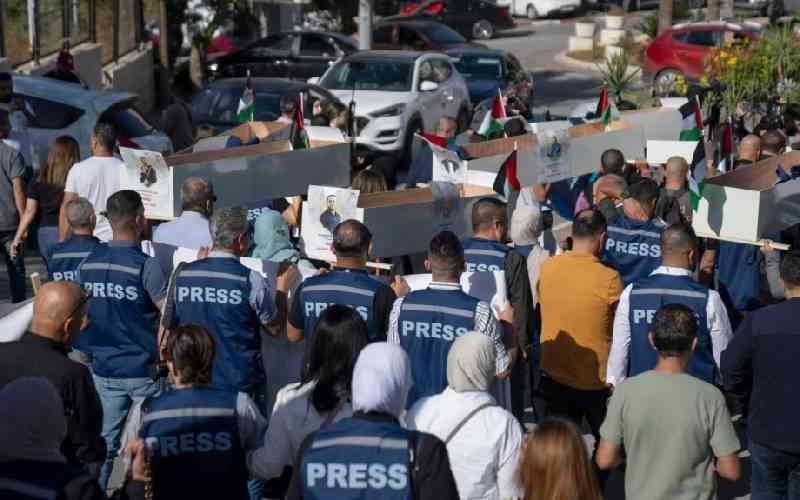
Hundreds of mourners gathered Wednesday in Beirut to pay tribute to two journalists killed in an Israeli airstrike in south Lebanon this week. Farah Omar and Rabih al-Maamari, who worked for the Lebanese broadcaster Al-Mayadeen, are among more than 50 journalists killed in the region since Israel's response to the October 7 Hamas terror attack.
Israel began its military campaign to wipe out Hamas after Hamas militants crossed into southern Israel on October 7. Israel said 1,200 people were killed and some 240 captives taken in the terror attack. Gaza health officials say more than 12,000 Palestinians, including at least 5,000 children, are confirmed killed in Israel's military offensive in the Gaza Strip.